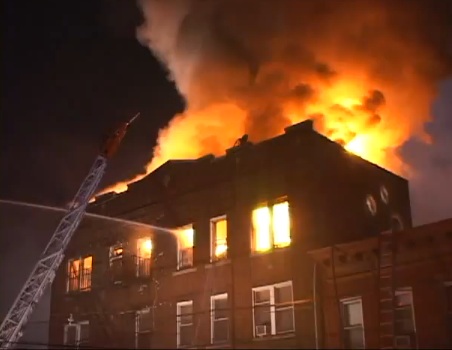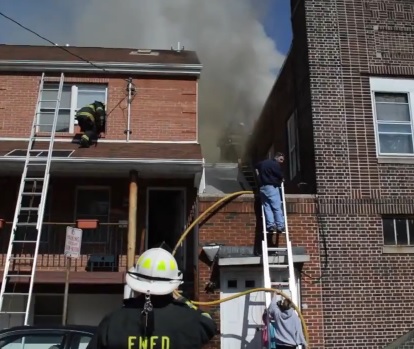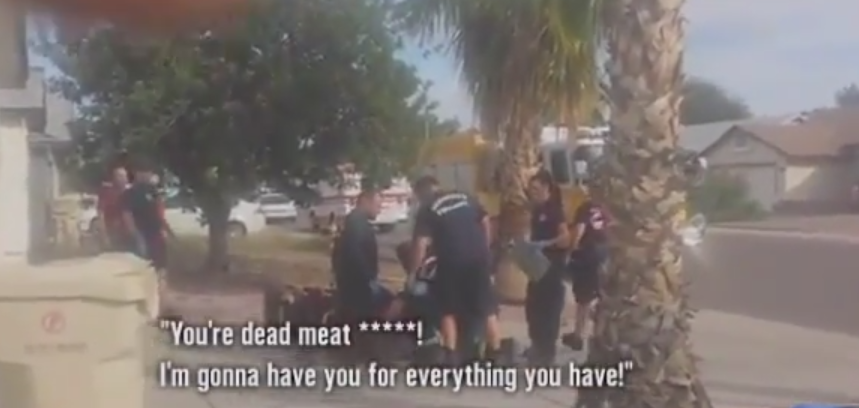3:26 for DC 911 to dispatch a child not breathing call & no one gives a shit
In case my headline didn’t give you enough of a hint, let me make it clear that I’m mad. I’m extremely angry a child died during another delayed response in the District of Columbia and no one is focusing on a chronic problem that’s behind the delay. Instead they’re distracted by secondary issues.
A new round of stories abound after an internal report was released yesterday (Tuesday). But the report itself, a top city official and the news media all failed to key-in on exactly how and why the District of Columbia government didn’t respond promptly and to the best of its ability on the call to help 18-month-old Martin Cuesta.
Almost the entire 47-page DC Fire and EMS Department internal affairs investigation and most of the news coverage, centered on a lieutenant in charge of Paramedic Engine 20, at the firehouse closest to the Cuesta home, who failed to ask 911 center dispatchers why the engine and Ambulance 20 weren’t sent on the call (this is covered in the STATter911.com story yesterday).
The lieutenant certainly deserves scrutiny for many things you will read in the report, but any mistakes he made occurred because the 911 center, also known as the DC Office of Unified Communications (OUC), had already failed Martin Cuesta. It failed the little boy in the same way it’s failing a bunch of other people today and will again tomorrow — because the call takers, dispatchers and supervisors are not properly trained, they lack sound procedures and the technology they have either doesn’t work well or isn’t used effectively.
The DC Fire and EMS Department report states that the first 911 call came to the DC Office of Unified Communications (OUC) about Martin Cuesta not breathing at 8:36:20 on March 13. That call wasn’t dispatched to fire and EMS units until 8:39:46 — three-minutes and twenty-six seconds later.
In all of the news coverage yesterday, and the 47-page report itself, there’s not one finding or one person saying it’s unacceptable for the 911 center to take three-minutes and twenty-six seconds before they dispatch firefighters, EMTs and paramedics to a child who has stopped breathing. No one is outraged. (Paul Wagner’s story at WTTG-TV/FOX 5 did acknowledge a four-minute call handling time, but that was not the focus of the report.)
As I mentioned, this report is an internal affairs document for the DC Fire and EMS Department. It should be expected to focus on mistakes of its employees and not OUC, a separate agency. But the report, written by DC Police Captain Hilton Burton, does talk about findings related to OUC that include both human error by dispatchers and mistakes generated by the computer aided dispatch system (CAD):
- Dispatchers should have known the closest paramedic engine company and ambulance were available in quarters and dispatched those units
- Dispatchers didn’t realize there were three separate incident entries for the same call in CAD
- Dispatchers dispatched the closest truck company (Truck 12, in the same house with Paramedic Engine 20 and Ambulance 20), quickly canceled the call for the truck and then re-dispatched them on the call
- OUC’s tablet based communications system, installed in all fire and EMS apparatus, was not working properly (a known problem)
Still, the most outrageous issue of all, that it takes three-minutes and twenty-six seconds to dispatch a child not breathing call in the Nation’s Capital, wasn’t important enough to be mentioned in this report. How can that be?
To his credit, in interviews he gave The Washington Post and NBC 4/WRC-TV, Deputy Mayor for Public Safety Kevin Donahue cites OUC as playing a major role in this botched response. Unlike Captain Burton’s report, Donahue even tells the Post, that dispatch times in general for fire and EMS are not at acceptable levels. But how about acknowledging that the handling time for THIS call, to help a child who was not breathing, was more than twice OUC’s own standards? How about someone saying delayed dispatch of emergency calls must stop now?
Jennifer Greene, was the director of OUC when this 911 call for help occurred. Greene was fired on May 3 within hours of our report about Greene’s April 27 testimony before the DC City Council. In that testimony, Greene said that the call handling standard of 90 seconds should be longer because DC’s 911 center has never been able to meet that standard (read more here and here). Full disclosure — Greene was asked these questions by DC Council Member Kenyan McDuffie, who was reacting to my testimony at the same hearing about the call processing times. My information came from the agencies own monthly reports and an article by Ben Nuckols at the Associated Press.
OUC’s Jennifer Greene and her former bosses, Deputy Mayor Paul Quander and Mayor Vincent Gray, are also responsible for rushing into place new communications technology last year in all DC fire apparatus and ambulances. Those tablets malfunctioned regularly and contributed to dispatchers not knowing Paramedic Engine 20 and Ambulance 20 were available on the morning of March 13.
Based on the news coverage from yesterday, expect a new round of reports and columns stating the culture of the DC Fire and EMS Department is killing people. I imagine the Washington Post Editorial Board, big supporters of the misguided fire and EMS agenda of the former administration (Gray, Quander, Greene and Chief Kenneth Ellerbe) is already typing away and blaming those nasty firefighters for not caring about EMS. My friend Eric Lamar is already going there (we respectfully disagree on this one).
Yes, there still is a great deal that needs improving at the DC Fire and EMS Department when it comes to EMS. I don’t want to minimize that issue. In addition, the lieutenant involved certainly must account for what’s in that report. But looking at his statements, I doubt the real issue with this call is that he hates EMS. My reading is that the problems the report highlights for that individual may be a little wider in scope.
Despite what you are saw in the news yesterday, if you really want to prevent the mistakes made when help was called for Martin Cuesta, and if you really want to greatly improve the response to EMS calls by the DC Fire and EMS Department, you must first start by acknowledging the 911 center is broken. You must let the press and the public know that three-minutes and twenty-six seconds means you failed.
Dozens of documents were written and many interviews were done to create a 47-page report that tells us how one lieutenant, at one engine company, screwed up.
If Deputy Mayor Kevin Donahue really wants to fix this problem, he should order an equivalent report, looking at all the people, procedures and technology that didn’t work at the Office of Unified Communications when someone called 911 saying Martin Cuesta wasn’t breathing.








